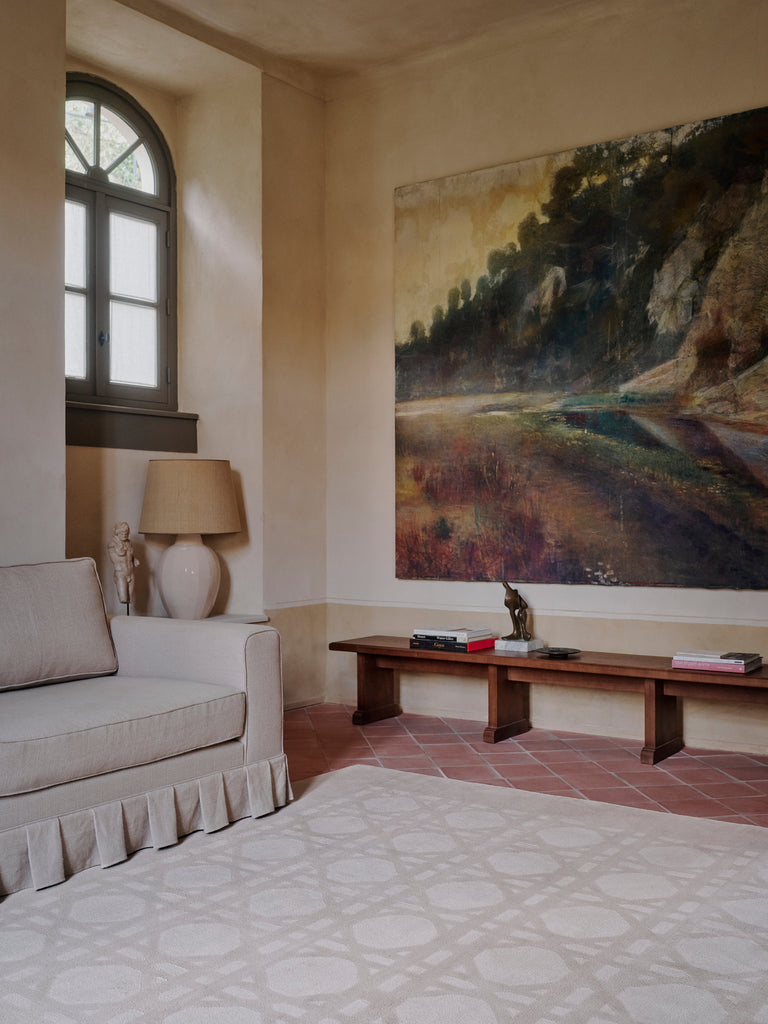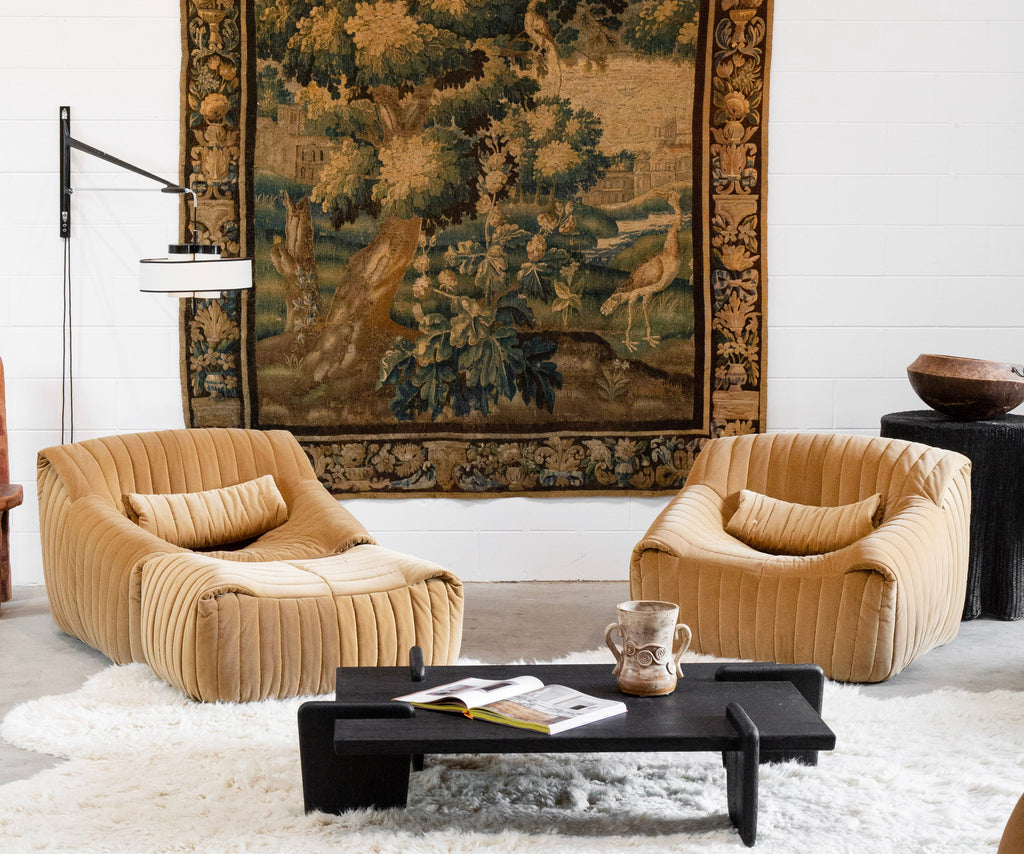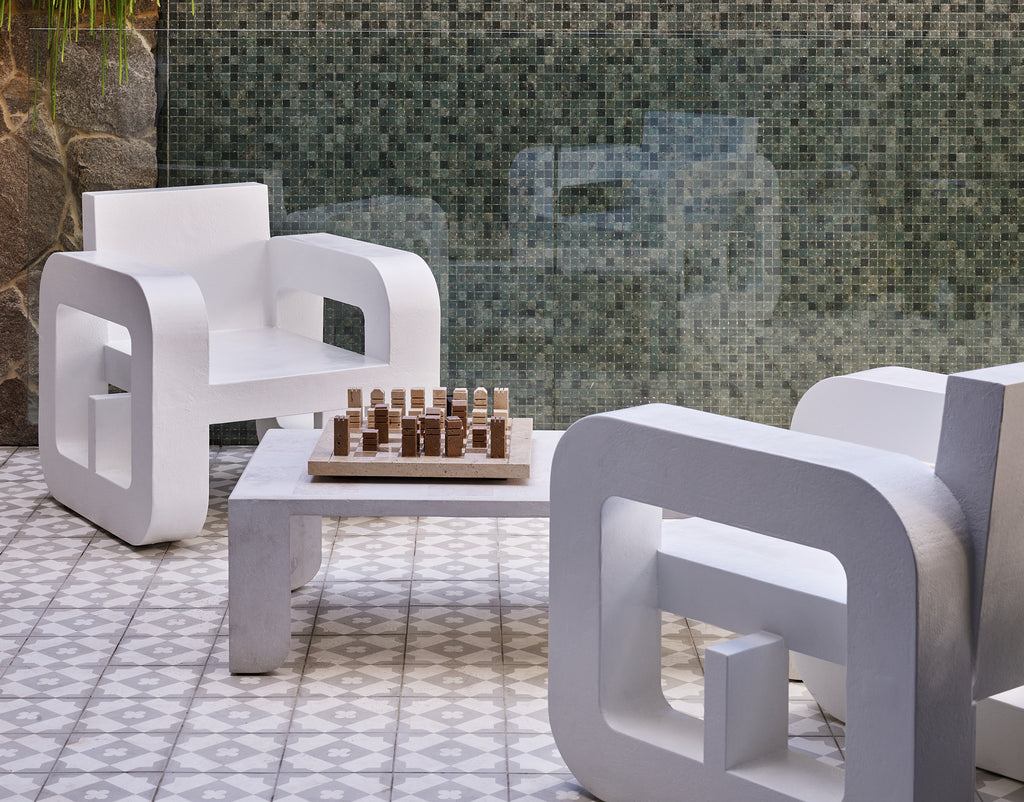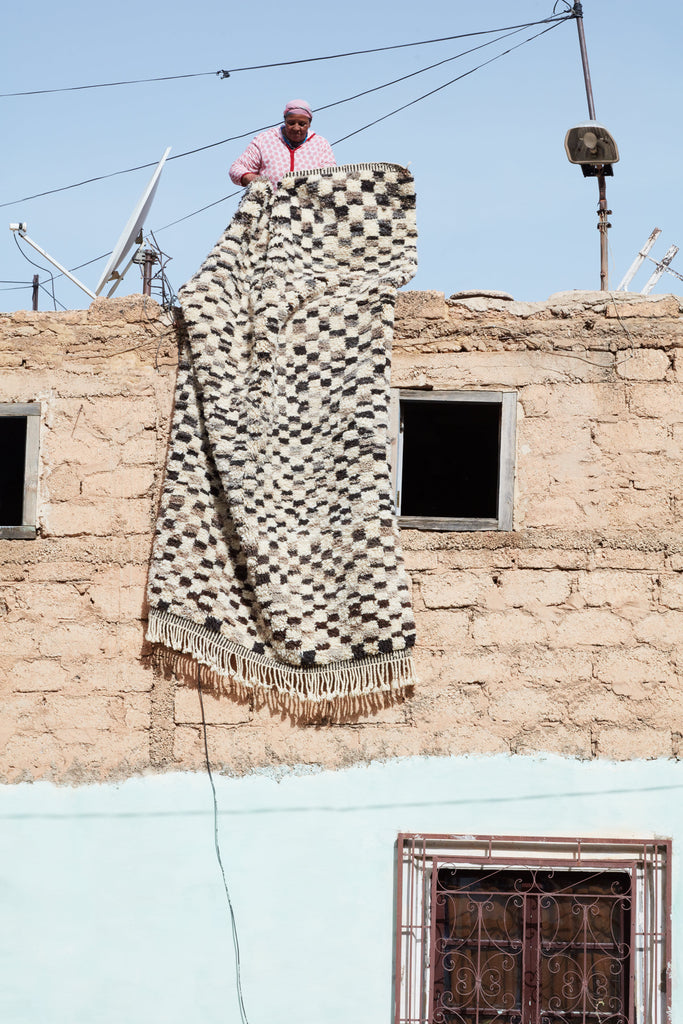
Tête-à-tête
Parley for the Oceans
We all need to talk about Parley!
Parley for the Oceans are a new form of environmental organisation that uses collaboration as their greatest resource.
Since 2012 Parley have worked collaboratively with business leaders like Adidas, AMEX and Net-A-Porter on creating impactful campaigns and have spearhead a global movement to end marine plastic pollution. Their innovative approach has captivated the support of organisations, governments, artists, designers, scientists, innovators and environmentalists with their voice is being heard at UN level, appointed to host the 2015 launch event on Climate Change.
With an innovative, inspiring and empowering approach, Parley helps to raise awareness for the beauty and fragility of the Oceans.
Tigmi have just become the exclusive Australian stockist of Parley’s Clean Waves sunglasses - made from reclaimed fishing gear and marine plastic debris.
We spoke to Lea Stepken, one of the Co-Founders of Parley on her unique work, and inspiring a movement of change.
Hi Lea, firstly - congratulations on all you’ve accomplished in Parley! For those yet to know about Parley, in your words, could you tell us a bit about the movement, and the role you play in it?
Parley is a new form of environmental organization, acting as a collaboration network and impact platform focused on three major threats to our oceans: Climate change, overfishing and the plastic pollution crisis. The nucleus of Parley is collaboration, flanked by creativity and what we call Eco Innovation.
As Co-founder and Creative Director, my role at Parley is to lead the organization together with my partner Cyrill on multiple levels, from overall strategy, to operations, to creative direction. With my background in design I love working cross categories and collaborating with experts from different fields – and in a way all these environmental issues we are facing are really design challenges.
What do you feel is one of the most urgent issues our oceans currently face, and how does Parley help address the issue?
These ocean and planetary crises can be rooted back to our current economic models. For too long we have been letting toxic and harmful materials, production methods and business practices define how our society is maintaining a ‘consumer lifestyle’ that assumes our resources are infinite – product availability has to be instant and once we don’t want a product anymore, we can simply throw it away. Plastic is a prime example of how we invented a seemingly perfect material which then turned out to be this major threat to the health of humans, animals and our environment – a massively toxic and indestructible material that never disappears.
With the Parley A.I.R. Strategy, we came up with a solution that aims to solve these epic challenges through a three prong approach. ‘Avoid’ the use of harmful substances like plastic or fossil fuels, ‘Intercept’ pollution generated by the extensive use of such materials and ‘Redesign’ materials or products to end the origin of these severe environmental issues. We collaborate with key figures and organizations in the creative industries, major brands, governments and finance to rapidly establish blueprints of how broken economic systems can be successfully transformed.
Tell us about your personal history with the ocean and what led you to this line of work?
Growing up in the countryside as a kid, I very early on felt a strong connection to the natural world and loved being around animals. Their calm, peaceful, nonverbal ways of interaction somehow made me feel grounded and safe. I guess because communicating with another living being that doesn’t use words pushes you to act intuitively, shut out the noise and trust your instincts – which makes these connections very honest and direct. So caring about environmental issues came quite naturally, already at a young age I started supporting animal right groups like Greenpeace or WWF by setting up fundraisers or collecting signatures for petitions, of course on a small scale back then.
Years later in 2012, I happened to meet Captain Paul Watson, founder of Sea Shepherd, and learned from him about the desolate state of the oceans. I was shocked, quite honestly. How could someone like me, fairly informed about environmental issues and on top of that working in the field of media not know about these major threats to our most vital life support system?
This moment was truly pivotal – my partner and I decided that day to dedicate our creative skills to the cause, because we saw the need for these issues to be translated to a wider audience – and as a consequence turned our brand strategy/design agency into a new form of an environmental organization, the oceans being our client.







We love the innovative collaborative projects that Parley work on and are so pleased to be the exclusive Australian stockist of Clean Waves, a limited-edition sunglasses collection made from reclaimed fishing gear and marine plastic debris. How did the Clean Waves project first come about?
We've come a long way since introducing the first products made from Parley Ocean Plastic and establishing a supply chain for upcycled marine plastic waste. It started with a sneaker presented with adidas at the UN General Assembly Hall in New York - introducing the idea of 'Symbols of Change' and a proof of concept that we can transform a problem into a solution through creativity and collaboration. But it's never been about the products alone, or simply upcycling. Every item made from our materials becomes a messenger for the cause and a revenue source to scale our impact on the ground. Right now we've taken action in over 30 countries in collaboration with local communities, organizations and volunteers. We always want to think long-term and create - or boost - the frameworks for solutions.
With Clean Waves we wanted to focus on one of the most fragile ecosystems on our planet when it comes to the negative impacts of plastic pollution: Remote island nations. They are confronted with the worst side effects of our ‘throw away’ mindset, as they are usually not equipped with an infrastructure that can handle plastic waste and also are depending a lot on imported goods… which creates this toxic cycle for them and their environment. It not only threatens their health, but also main sources of income: Tourism and local fishing. To put the spotlight on these remote regions just forces us to look into the mirror. What does it mean for us as a society if not even ’paradise’ is safe from pollution…? There really is no ‘away’. And as the Clean Waves logo suggests, unfortunately there really are no clean waves anymore.
The beauty of Clean Waves lies in its very personal, direct approach – where every creative collaborator goes through this co-creation process of reflection and learning with us. It’s really an invitation to the creative community to become part of the solution by engaging with these originally harmful materials and turning them into something positive, fundraising items for the cause.
Every pair of ‘Clean Waves’ has a unique series of GPS coordinates from an island - the exact spot that you help protect with the purchase of the glasses. Can you tell us more about the positive impact a project like Clean Waves has on the ocean?
Clean Waves is a blueprint for a new way of solving environmental issues in collaboration with local communities by creating instant impact on the ground through clean ups, and bringing deeply rooted change through education.
100% of the net proceeds from the sunglasses are directed towards the GPS location coordinates engraved on each pair. They become the direct link to the people, projects and the progress we’re making on these islands, thanks to the contribution – creating a personal connection between customers and those remote regions. On average we collect 50 KG of plastic waste per pair sold. That's the equivalent of approximately 5000 plastic drinking bottles.
Parley has collaborated with scientists, activists, inventors, musicians as well as global companies like Adidas, Net-A-Porter and AMEX. Recently Parley partnered with Cannes Lions on creating a trophy from reclaimed fishing nets — what would be one of your ultimate collaborative goals?
We started collaborating closely with governments, helping them develop strategies for national action plans to end the plastic crisis through lawmaking, education, and by implementing our strategy for end-to-end solutions (Parley A.I.R), where up-cycled plastic waste replaces virgin plastic and the development of new, alternative materials is supported. At this point it's all about systemic change, scaling up what we learned over the last nine years of Parley. We are running out of time and therefore we need to align with the best possible partners on a mutually agreed strategy.
The oceans give us life. We give them plastic. Let’s invent our way out of this. Together.
Parley has a very realistic standpoint ‘There is no magic fix for complex ocean threats, but there are simple steps you can take right now to be part of the solution.'For whoever is reading this, what do you hope will be their biggest takeaway?
Not to wait on anybody else to solve the problems for us! Every single one of us has something to contribute and can come up with a small or even large solution to help drive change. Shaping the future truly lies in our own hands.
What’s next for Parley?
Scale – and with that hopefully a warp jump in terms of overall impact. We’re striving to rapidly grow our network of collaborators to inspire and empower as many as possible and together change the trajectory of mankind’s current destructive, negative impact on this planet to a more harmonious and synergetic way of living with nature. We believe a blue future is possible, as long as we choose creativity and optimism over apathy or cynicism – and start acting boldly, right now.


















